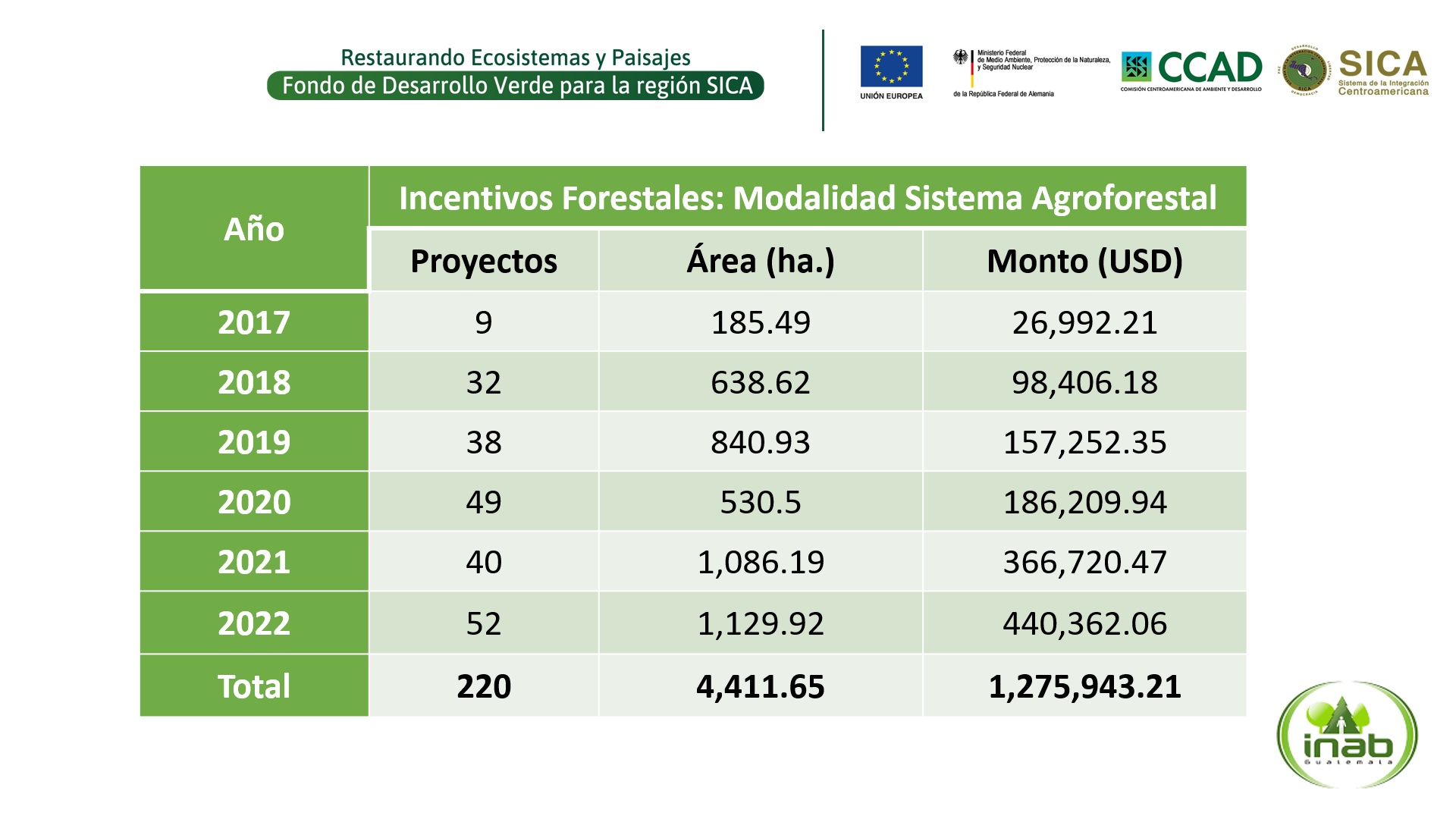

The purpose of this building block is to develop agroforestry systems management policies in line with coffee growing and link them to the country's forestry development policies, responding to the challenges of the market and applicable international legislation.
In essence, it is necessary to promote incentive policies (economic and/or commercial) that stimulate agroforestry in coffee plantations at the same time, the value chains in the forestry sector as small timber.
This requires two main elements:
- The ability to adjust forestry programs to accommodate agroforestry elements, without undermining coffee production but maintaining the spirit of the forestry policy.
- Encourage intersectoral dialogue around the issue of agroforestry in coffee plantations, in order to identify points of technical and political coincidence.
To illustrate this building block, the case of the Forestry Incentives Program of Guatemala -PROBOSQUE- is used; which made adjustments to the modality of forestry incentives in the agroforestry modality, changing parameters to include the cultivation of coffee, having a greater impact.
- To have a clear forest policy framework, which first, determines the scope of its objective as a public policy, the subject that expects to benefit and the expected results of its implementation; second, the issues where it can and should generate synergies to achieve the objectives of the forest policy.
- To have consolidated public policy instruments that allow interaction with other productive sectors. Guatemala's Forestry Incentives Program -PROBOSQUE- originated in 1996 and continues to operate to date.
- The development of pilot initiatives is required to evaluate and/or test the technical hypotheses of the different stakeholders in adjusting public policy instruments; in this case the public forestry sector and the organized private coffee sector.
- Extensive internal and external discussion and consultation processes are required among the different stakeholders to achieve the benefits of the different sectors, without affecting the institutional and legal mandates that the stakeholders must comply with.
- Technical materials need to be developed in order to communicate and disseminate information to potential stakeholders on the new modalities offered by public policy instruments.